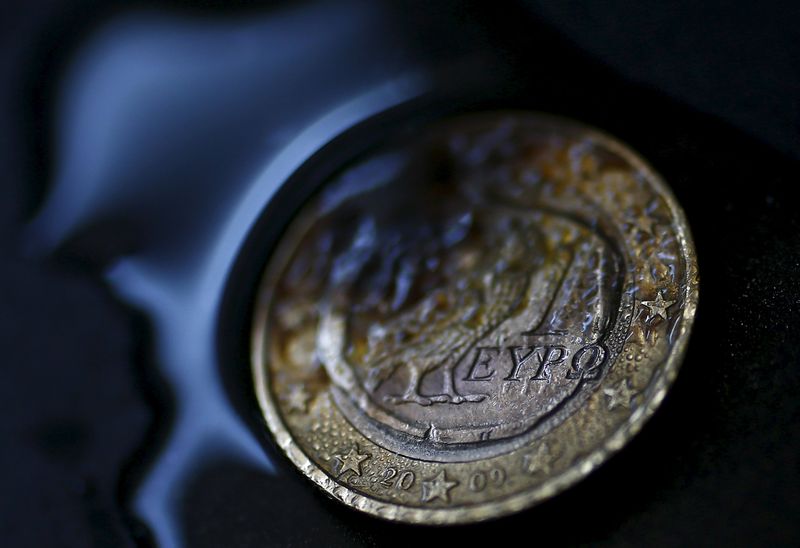By Gyles Beckford
WELLINGTON (Reuters) - The euro fell sharply on Monday in Asia-Pacific trading after Greeks looked to have overwhelmingly rejected austerity measures demanded in return for bailout money.
The euro initially fell about 1.4 percent against its U.S. counterpart but trimmed its losses slightly to last trade at $1.0992 <EUR=>.
The latest reports from Greece said around 60 percent of those voting in the referendum had backed the government and rejected the bailout conditions.
"This does two things: it legitimises the stance of the Greek government and it leaves the ball in Europe's court," ANZ Bank analysts said in a note.
"Europe either folds or Greece goes bankrupt; over to you Merkel."
The next step was unclear with Greek Prime Minister Alexis Tsipras saying his government had a mandate to reach a viable solution and was ready to resume talks, while Germany and France were seeking a euro zone summit on Tuesday.
The first test looked to be whether the European Central Bank (ECB) would maintain emergency funding for Greek banks at the current restricted level.

"The ECB will likely keep this open until it gets clarity from political leaders. In any case, markets are in for a period of uncertainty and protracted negotiation," said Bank of New Zealand currency strategist Raiko Shareef.
The 'No' vote triggered a rush to safety with the yen being the main beneficiary, with the euro down 1.6 percent against the yen to 134.24 yen (EURJPY=), while the U.S. dollar traded at 121.94 yen <JPY=> from 122.80 on Friday.
The New Zealand and Australian dollars, often taken as a proxy for risk appetite, also trimmed early losses, but the kiwi <NZD=D4> was down 0.5 percent, just above a five-year low at $0.6645, while the Aussie <AUD=D4> was down 0.5 percent at $0.7473, just above a six-year low.